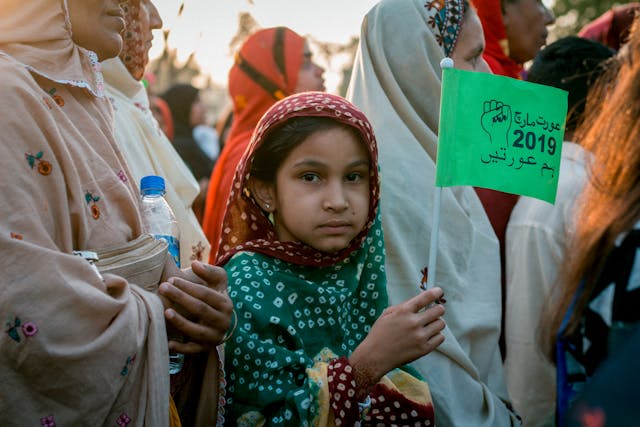It is no secret that Pakistan confronts a wide range of socio-economic issues. From the age-old challenges of poverty, inequality and illiteracy to population growth, rising foreign debt, and the late pandemic – these issues considerably hamper the social and economic development of Pakistan.
Another challenge that hovers over Pakistan, and indeed the entire world, is climate change. Climate change has become a hot topic in this century, not so much for being controversial (there is scientific evidence for global warming and environmental degradation), but for the pressing, acute and unpredictable hazards associated with it.
Unlike issues mentioned earlier, which are mostly domestic and have to be addressed locally, climate change is essentially a global challenge. Should Pakistan, given it is already swamped with considerable socio-economic challenges, even attempt to tackle climate change. Or leave that for the future or economically advanced countries? Will not actively participating in climate-sustainable goals distract Pakistan’s attention from the much-needed social, economic and human development?
It turns out that climate crisis is not simply a separate menace, isolated from the day-to-day activities of human beings. But, it is an active danger to nature and the socio-economic sphere of life. No doubt, it carries germs of destruction of the ecosystem in the imminent future. In addition, however, it also threatens to disrupt countries’ social fabric and economic structures.
Pakistan, in particular, is vulnerable to climate change events, provided her geographical features and rising population. According to the Global Climate Risk Index (CRI), Pakistan resides in the top 10 countries most affected by climate change events, based on the average of 2000-2019 data. It is imperative, therefore, that Pakistan prioritizes climate-related programs and sustainable goals as any other socio-economic problem.
The ecological and socio-economic impacts of climate change on Pakistan cannot be isolated. Indeed, climate change events can trigger social and economic issues, which Pakistan is already replete with. For example, when the Indus River is affected, due to weather variation or seawater intrusion, the event may have wide-scale ecological, social and economic ramifications, impacting people’s health and livelihoods along with the natural ecosystem.
Similarly, climate change events can dislodge people out of regions that are immediately affected and force them into migration to urban areas – thereby impressing social and economic tensions on migrants and inhabitants. Climate-induced migration has already made Pakistan “one of the most urbanized counties in South Asia” and threatens to impact 25 percent of the total population by 2050.
Densely populated urban areas are also exposed to the adverse effects of climate change. It is no surprise that cities like Lahore, Multan and Faisalabad “emerge among the top 10 hotspot districts.”
Climate change incidents in Pakistan can directly influence people’s health and livelihoods. The immediate impacts on people’s healthcare and livelihood options can further exacerbate social and economic tensions, releasing unexpected vicious circles of interrelated socio-economic issues. The urgency for tackling climate change, then, is no less than that of other socio-economic issues.
Extreme variability in weather conditions can severely impact Pakistan’s agriculture system, water supply and energy sector. According to the Pakistan Bureau of Statistics’ most recent report for the agriculture sector (2010-11), agriculture “provides livelihood to about 68 percent people living in rural areas and employs about 45 percent of the total national labour force.” Climate change impacts on agriculture in a country such as Pakistan can have massive repercussions on the country’s economy and food production. Again, these impacts are inevitably interrelated to other socio-economic problems and can induce unintended consequences.
Similarly, climate change can gravely disrupt Pakistan’s water supply system on account of melting glaciers, monsoon variability, and rising average temperature. All these aspects contribute to the water-related issues in Pakistan, which can massively disturb food and energy production (34 percent of Pakistan’s electricity is generated via hydropower), impact people’s health, and aggravate poverty and hunger. These direct influences on people’s lives can further intensify economic and political tensions in the country.
Climate change cannot be rebuffed with the justification of already existing problems in the socio-economic sphere. In fact, the programs meant to address climate change threats – such as global warming, water scarcity, and floods and droughts – can ameliorate the existing nuances of numerous social and economic problems in Pakistan. For example, addressing water-related issues in the face of climate change can become a sigh of relief for people who are direct victims of, say, floods and droughts.
Similarly, upgrading the transportation system of Pakistan – which is the biggest sector contributing to air pollution – through green or less fuel-intensive public vehicles can lessen carbon emission, meanwhile smoothening daily social and economic activities.
From 1997 to 2016, 141 climate change events in Pakistan incurred “estimated losses of US$3.8 billion.” Alleviating the intensity of such events through sustainable technologies and systems, or becoming more resistant to them, can save Pakistan huge economic costs like these.
Many socio-economic challenges face Pakistan. Indeed, most of these challenges, if not all, require internal struggles of one form or another. No outside agency will come to the rescue; people and the government of Pakistan will ultimately have to take action themselves. However, global challenges, although demanding action from countries separately, can only be tackled globally. The public and private spheres of Pakistan need to take initiatives against the looming threats of climate change in coordination with regional countries and international organizations.
Interestingly, climate change can offer a fruitful context for Pakistan’s foreign policy and international relations. The dialogues between the United States and Pakistan, for example, on peace-making in Afghanistan can help develop diplomacy in the region. Better diplomatic relations between Pakistan and Afghanistan mean mitigation of border tensions, which can improve both countries’ socio-economic fabric. Since Afghanistan and Pakistan share not only a border, but also the Kabul River, peaceful Pakistan-Afghanistan relationships can make headway for a synergic alliance between the two countries against water scarcity and mismanagement – a vital aspect of climate change.
There are numerous steps to tackle climate change while addressing the socio-economic and defense tensions between Afghanistan and Pakistan. The United States can mediate between the countries with sustainable development goals in consideration – which can have far-reaching benefits for the socio-economic development of Pakistan and Afghanistan.
In a nutshell, climate change is not a separate threat that can be put off to tackle other socio-economic problems existing in Pakistan. Indeed, the climate crisis is intermingled with different aspects of social and economic spheres, and acutely threatens people, the economy and the ecosystem – especially if left unaddressed.
Pakistan should focus on the United Nations’ Sustainable Development Goals (SDGs), which essentially puts forward that development should “ensure that it meets the needs of the present without compromising the ability of future generations to fulfill their needs.”
Addressing climate change comes in line with SDGs. Pakistan should therefore embrace climate-related programs and policies, in coordination with international organizations, as an essential part of its development framework. This will not only improve the socio-economic conditions of the country and reduce the threat of climate change for the present generation, but also prove fruitful for future generations.






